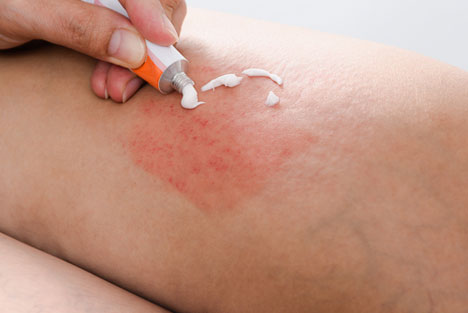
New Delhi: Skin creams containing steroids will be sold only on prescription, the Union health ministry has directed after multiple warnings by skin doctors that India is witnessing an epidemic of difficult-to-treat fungal infections through the abuse of such creams.
A notification from the health ministry has directed that pharmaceutical formulations containing steroids "for topical or external use" shall from November 1, 2018, be covered under Schedule H of the Drugs and Cosmetics Act. All drugs under Schedule H can only be sold by chemists on prescriptions of registered doctors.
The April 26 notification addresses a long-standing concern among skin specialists that the existing rulebook on medicines has allowed companies to sell skin creams containing steroids as over-the-counter medications for skin infections, good looks, even fairness.
The Indian Association of Dermatologists has since 2015 appealed to the Central Drugs Standards Control Organisation (CDSCO), the apex drug regulatory agency, to classify steroid-containing creams as Schedule H drugs and ban potentially dangerous cocktails of skin creams.
"The inclusion of steroid creams in Schedule H is a small positive step, but irrational and dangerous creams continue to be sold," said Ramesh Bhat, president of the Indian Association of Dermatology and a professor of dermatology at the Father Muller Medical College, Mangalore.
"We will continue to seek a ban on the irrational combinations of skin creams," Bhat told The Telegraph. The association had last August filed a public interest litigation in Delhi High Court seeking action against the steroid-containing and irrational creams.
While steroid-containing skin creams are prescribed for certain skin disorders such as melasma - the emergence of dark patches on the skin - dermatologists have been worried such creams sold without prescriptions are used for itching, acne, infections, even fairness.
"We're now seeing an epidemic of difficult-to-treat fungal infections causing havoc," said Shyam Verma, a Vadodara-based dermatologist who had written about the abuse of steroid-containing skin creams in the British Medical Journal and the Indian Journal of Dermatology.
"Skin cream combinations containing anti-fungal medications and a strong steroid called clobetasol won't be found in countries with strong regulatory oversight," Verma said. "Here, such creams sold over the counter are largely responsible for this epidemic."
Dermatologists are still worried about how effectively the government will implement the inclusion of steroid-containing creams among Schedule H drugs. They say a senior CDSCO official had, during a meeting with a panel of dermatologists on April 13, expressed doubts about the notification's outcome on sales.
"It was disappointing to hear the highest drug regulatory authority giving up even before the notification is issued," said Rajetha Damisetty, a Hyderabad-based dermatologist and former national convenor of a task force established by the association to campaign against the abuse of steroid-laced creams.
"The official pointed out that even antibiotics are sold in India without prescriptions - this is a reality, but it's still disappointing to hear this from a regulator."
The association says its campaign to eliminate irrational skin cream combinations from the market will continue.










